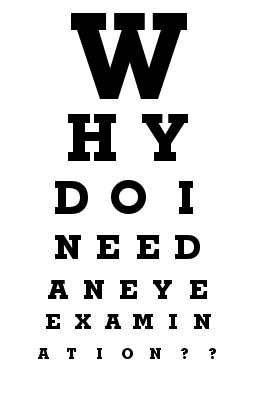Your Eyes: In-Depth Understanding for a Healthier Vision

Sight is one of the most important senses. It gives us a view of the outside world. We sometimes take our vision for granted. It's important to take care of our eyes, because there's so much to see!
Experts recommend having a routine eye exam on a regular basis. Most annual eye exams are covered by insurance at little or no out-of-pocket cost to you. Just an hour in the eye doctor's office can do a world of good.
Here are a few reasons why eye exams are important:
1. Eye Exams Help Identify Vision Problems
Problems with nearsightedness and farsightedness can be identified during an eye exam. Other possible vision problems such as strabismus (also known as crossed eyes) and amblyopia (a condition where one eye's focus may not be equal or require greater corrective action) can be identified by your eye doctor at an exam.
2. Eye Diseases Can Be Detected
Eye diseases such as cataracts, glaucoma, macular degeneration and others can be diagnosed during an eye exam. While these conditions cannot be rectified as easily as nearsightedness or farsightedness, your eye care professional can identify the issue and recommend the proper eye care and next steps to help you improve and maintain your eyesight for as long as possible. Check this website for glaucoma management advice.
3. Eye Exams Can Also Find Other Health Issues
In addition to the above-mentioned concerns, a regular eye exam can also help find other health-related problems such as high blood pressure, high cholesterol, diabetes and even some forms of cancer.
Having an annual eye exam is recommended for children, and an eye exam every couple of years is recommended for adults until age 60, after which annual exams are preferred. Your eyesight can change slowly or dramatically, depending on many things, including computer work, reading, etc.
Here are a few handy tips for helping to keep your eyes healthy:
1. Find Out About Family Eye History
Do some research or ask family members to find out if anyone has had glaucoma, cataracts or other eye issues as some of these conditions may be hereditary. Let your eye doctor know if anyone in your family has had a history of eye diseases or eye issues.
2. Protect Your Eyes.
Wearing protective lenses, sunglasses and safety goggles while working outside, sitting on the beach or working in environments where there are hazards can do a lot towards maintaining your eyesight. Keeping your eyes safe from harm and UV rays is a daily concern, but nothing you can't handle.
3. Rest Your Eyes
To avoid eye strain, try taking breaks regularly if you work at a computer screen or work in other situations where you forget to blink. Not blinking on a regular basis can cause eye fatigue. Step away from your desk, or take a brief walk around the office if you need to. Your eyes need rest just like other parts of your body do.
4. Eat Healthy
Having a healthy, nutritious diet can also help your eyes. Some recommended foods are fish that contain omega-3 acids and green vegetables such as spinach or lettuce that have carotenoids which promote retina health.
These are just a few suggestions. There are many more resources available online at http://www.eye7.in/cornea/ and other websites. Talk to your eye care professional, and schedule regular eye exams for you and your family. You have a lot more of this great world to see, and the only way you can do so is by keeping your eyes healthy.
839GYLCCC1992




Leave a Reply